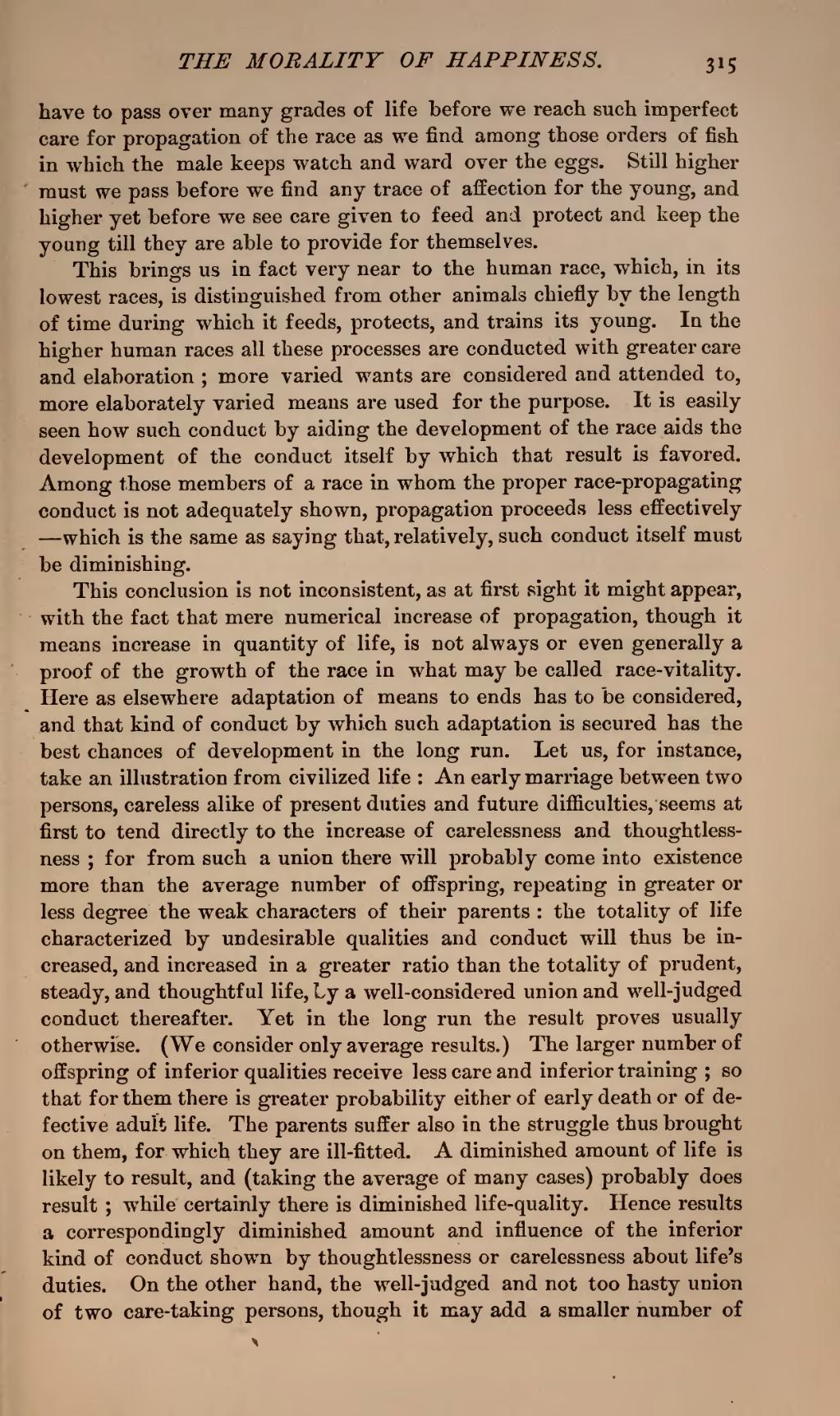have to pass over many grades of life before we reach such imperfect care for propagation of the race as we find among those orders of fish in which the male keeps watch and ward over the eggs. Still higher must we pass before we find any trace of affection for the young, and higher yet before we see care given to feed and protect and keep the young till they are able to provide for themselves.
This brings us in fact very near to the human race, which, in its lowest races, is distinguished from other animals chiefly by the length of time during which it feeds, protects, and trains its young. In the higher human races all these processes are conducted with greater care and elaboration; more varied wants are considered and attended to, more elaborately varied means are used for the purpose. It is easily seen how such conduct by aiding the development of the race aids the development of the conduct itself by which that result is favored. Among those members of a race in whom the proper race-propagating conduct is not adequately shown, propagation proceeds less effectively—which is the same as saying that, relatively, such conduct itself must be diminishing.
This conclusion is not inconsistent, as at first sight it might appear, with the fact that mere numerical increase of propagation, though it means increase in quantity of life, is not always or even generally a proof of the growth of the race in what may be called race-vitality. Here as elsewhere adaptation of means to ends has to be considered, and that kind of conduct by which such adaptation is secured has the best chances of development in the long run. Let us, for instance, take an illustration from civilized life: An early marriage between two persons, careless alike of present duties and future difficulties, seems at first to tend directly to the increase of carelessness and thoughtlessness; for from such a union there will probably come into existence more than the average number of offspring, repeating in greater or less degree the weak characters of their parents: the totality of life characterized by undesirable qualities and conduct will thus be increased, and increased in a greater ratio than the totality of prudent, steady, and thoughtful life, by a well-considered union and well-judged conduct thereafter. Yet in the long run the result proves usually otherwise. (We consider only average results.) The larger number of offspring of inferior qualities receive less care and inferior training; so that for them there is greater probability either of early death or of defective adult life. The parents suffer also in the struggle thus brought on them, for which they are ill-fitted. A diminished amount of life is likely to result, and (taking the average of many cases) probably does result; while certainly there is diminished life-quality. Hence results a correspondingly diminished amount and influence of the inferior kind of conduct shown by thoughtlessness or carelessness about life's duties. On the other hand, the well-judged and not too hasty union of two care-taking persons, though it may add a smaller number of
